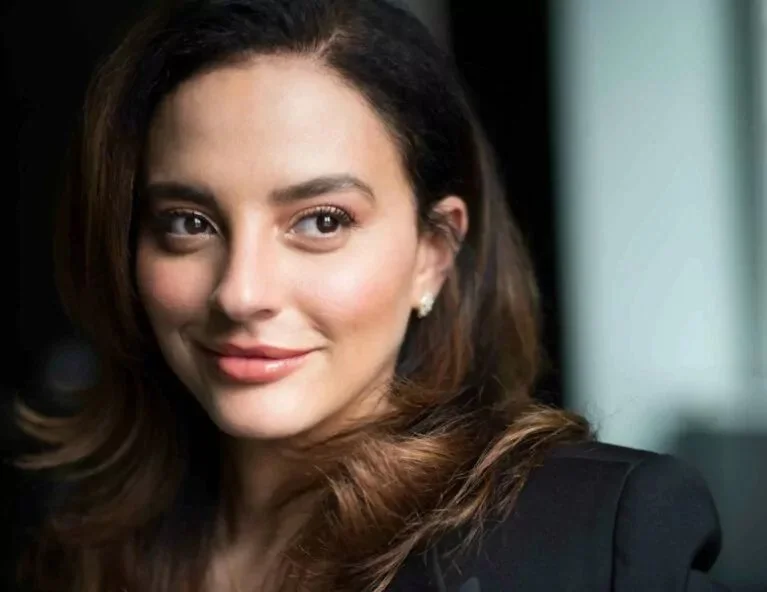In Grand Finale Viennois, violinist Joan Blackman explores connections between historical composers
Vetta Chamber Music’s artistic director is joined by talented colleagues for a season-closing program of Haydn, Mozart, and Schubert
Joan Blackman.
Vetta Chamber Music presents Grand Finale Viennois on May 2 at West Point Grey United Church, May 3 at West Vancouver United Church, May 4 at Pyatt Hall, and May 5 at ArtSpring on Salt Spring Island
IT’S TEMPTING TO THINK of the composers of the Classical period as singular geniuses, toiling away in inspired isolation only to emerge with world-changing masterpieces. Dig a little deeper, however, and you’ll find that this is far from reality.
Wolfgang Amadeus Mozart and Joseph Haydn, for example, were friends who are known to have performed together on a number of occasions. The two Austrians held each other’s work in great esteem, with Haydn once writing: “If only I could impress Mozart’s inimitable works on the soul of every friend of music, and the souls of high personages in particular, as deeply, with the same musical understanding and with the same deep feeling, as I understand and feel them, the nations would vie with each other to possess such a jewel.”
Haydn tutored a young Ludwig van Beethoven, who in turn had a significant influence on the up-and-coming Franz Schubert, of whom he reportedly remarked, “Truly in Schubert there is the divine spark.”
It’s fitting, then, that several of these composers of the First Viennese School feature in Vetta Chamber Music’s 2024-25 season-closing concerts. Artistic director and violinist Joan Blackman has programmed Haydn’s String Trio in G major, Op. 53, No. 1, Mozart’s Horn Quintet in E-flat major, K. 407, and Schubert’s Octet in F major, D. 803. This is all in keeping with the season’s overarching theme, which also resonates with Blackman on a personal level.
“The theme of the whole season this year has been connections, and when I think of Schubert’s Octet, I think of friendship,” she tells Stir. “I used to be, for many years, a member of the Vancouver Symphony, and some of my earliest invited guests for Vetta were from the VSO, so that is a reason to play the Schubert. And then what to pair with the Schubert?”
Mozart and Haydn would seem to be the obvious answer, but Blackman admits she did consider veering away from the Viennese. Vetta has, after all, been known to present some wildly eclectic offerings.
“The last concert we did was completely different,” Blackman says. “It had jazz and tango, and French music with saxophone, bass, piano, and violin. So we are kind of returning to our roots a little bit.”
The Schubert Octet calls for string quintet, clarinet, bassoon, and horn; because of this unusual configuration it isn’t performed all that often.
“It’s so lovely, and it’s so quintessentially chamber music,” says Blackman. “He wrote it for his friends, and they played it in a chamber, you know?”
Indeed, clarinetist Ferdinand Troyer commissioned the Octet in 1824, reportedly asking Schubert to compose something of a companion piece to Beethoven’s Septet in E-flat major, Op. 20. Schubert’s work was first played at the home of Troyer’s employer, the Archduke Rudolf, in a performance featuring several of the musicians who had premiered the Septet.
“There are solos for every player,” Blackman says. “It’s both orchestral and chamber, because it’s got just big enough a sound that it does feel a little bit like an orchestra at times, then it breaks off into smaller groups. There’s a lot of different combinations that he works with, so it’s both intimate and larger in scope.”
In addition to Blackman herself, Vetta’s take on it will include clarinetist Jeanette Jonquil, bassoonist Sophie Dansereau, French horn player Valerie Whitney, violinist Jennie Press, violists Jacob van der Sloot and Larry Blackman, cellist Zoltan Rozsnyai, and bassist Dylan Palmer.
“It meant a lot to me, for this final concert, to have these colleagues coming,” Blackman says. “We don’t normally have more than one wind player, if at all, in our concerts. It’s string- and piano-based. We’ll have a clarinet sometimes, or a saxophone, or a flute, but to have three winds is quite something.”
The Grand Finale Viennois concerts will not only close out the current season, but also give Blackman the opportunity to announce the next one, which happens to mark Vetta Chamber Music’s 40th anniversary.
She is understandably reticent about spoiling the surprise, but she does offer the following: “I will say that the theme this time is evolution, and one of the special things that we’re doing is that we will have Canadian works on every concert—and there will be one special one, but I’m not sure that I can reveal exactly what that might be.” ![]()
























